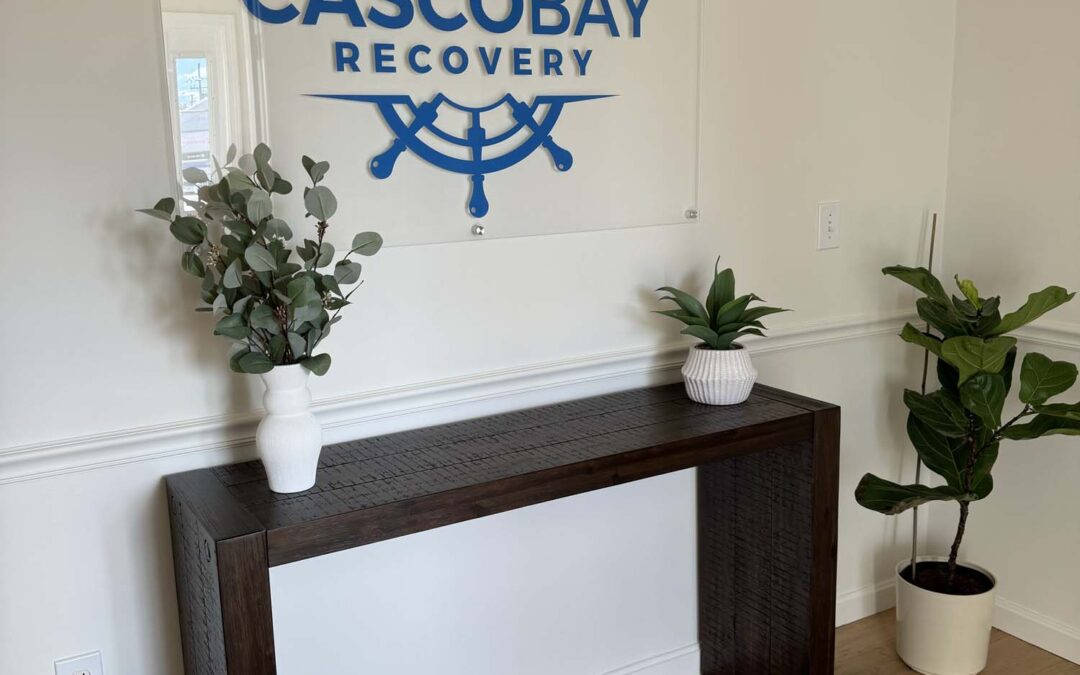Understanding Virtual Rehab
Virtual rehab is an innovative method of treating addiction that uses telehealth technologies to provide therapy sessions and support online. This approach makes it easier for people with substance use disorders to access the help they need, regardless of their location.
What are Telehealth Technologies?
Telehealth technologies refer to a range of digital tools that enable remote communication between patients and healthcare providers. These tools include:
- Video conferencing platforms
- Mobile applications
- Online portals
By using these technologies, virtual rehab eliminates the barriers of distance and allows individuals to receive treatment from qualified professionals without having to travel.
How Does Virtual Rehab Work?
With virtual rehab, patients can connect with their healthcare providers through secure online platforms. This setup offers several benefits:
- Convenience: Patients can attend therapy sessions and consultations from the comfort of their own homes, eliminating the need for transportation or time off work.
- Flexibility: Virtual rehab allows for scheduling flexibility, making it easier for individuals to fit appointments into their busy lives.
- Continuity of Care: Through regular virtual check-ins and support, healthcare providers can monitor progress and make necessary adjustments to treatment plans.
The effectiveness of online addiction treatment depends on how well these telehealth technologies are understood and implemented in patient care.
Effectiveness of Online Addiction Treatment
The effectiveness of virtual rehab has been studied extensively, showing that online addiction treatment can be a viable alternative to traditional methods. Research indicates that online drug rehab and virtual addiction treatment have yielded promising results. A study published in the Journal of Substance Abuse Treatment found that participants in online alcohol rehab programs often achieve sobriety rates similar to those attending in-person sessions.
Factors Contributing to Effectiveness
Several factors contribute to the effectiveness of virtual rehab:
- Tailored Programs: The ability to customize programs based on individual needs through personalized approaches.
- Consistent Monitoring: Regular check-ins and assessments to track progress and make necessary adjustments.
- Accessibility: The convenience of accessing treatment from anywhere, removing barriers such as transportation issues or geographical limitations.
These elements play a significant role in improving long-term recovery outcomes associated with online treatment, empowering individuals to maintain sobriety over time.
Potential of Digital Interventions
By examining research supporting the effectiveness of these digital interventions, it becomes clear that virtual platforms have great potential in helping individuals on their journey to recovery. They can fill gaps where traditional methods may be lacking.
For example, Casco Bay Recovery offers a client-centered approach to rehab in Portland, Maine. They utilize technology for recovery through telehealth addiction treatment, providing accessible support to those seeking help.
Benefits of Virtual Rehabilitation
Virtual rehabilitation presents numerous advantages for individuals seeking treatment for addiction.
1. Increased Accessibility
One of the primary benefits is the increased accessibility of rehab for those residing in remote areas. Online platforms bridge geographical gaps, connecting patients with healthcare professionals without the need for travel.
2. Affordability
The affordability of online rehab is another significant advantage. Virtual programs often incur lower costs than traditional in-person methods, reducing financial barriers to recovery.
3. Convenience and Flexibility
Convenience and flexibility are integral to virtual rehabilitation. Online therapy allows individuals to schedule sessions that fit their personal routines, accommodating various lifestyle needs. This flexibility ensures that treatment can be seamlessly integrated into daily life.
4. Anonymity
Anonymity plays a crucial role in virtual rehab’s appeal. Patients can engage with healthcare providers from the privacy of their own homes, alleviating concerns about stigma or judgment. This sense of security encourages more individuals to seek help, ultimately supporting better health outcomes.
Types of Online Addiction Programs
Virtual rehab services include various Substance Use Disorder Intensive Outpatient Programs (IOPs) offered online. These programs provide structured treatment plans with multiple therapy sessions each week, ensuring necessary support while allowing individuals to fulfill their daily responsibilities.
Online Therapy Options
There are different types of online therapy available, such as:
- Individual Counseling: Personalized one-on-one sessions with a therapist to address specific challenges in addiction recovery.
- Group Therapy: Facilitated group sessions that encourage shared experiences and peer support, which are crucial for building community and accountability.
Evidence-Based Practices
These online programs heavily rely on evidence-based practices to deliver quality care. Techniques like Cognitive Behavioral Therapy (CBT) and Dialectical Behavior Therapy (DBT) are integrated into the treatment to assist patients in developing coping strategies, managing emotions, and minimizing the chances of relapse.
Benefits of Virtual IOPs
Opting for virtual intensive outpatient programs offers a flexible yet effective framework for addiction treatment. This method ensures that individuals receive comprehensive care in their own surroundings, making it easier for them to access and engage in the program.
Challenges Associated with Virtual Rehab
Virtual rehab offers many benefits, yet certain challenges persist.
Technology Barriers
Technology barriers can hinder the effectiveness of online addiction treatment. Users often face issues such as unstable internet connections or difficulties navigating digital platforms, which can disrupt therapy sessions and impede progress.
Privacy Concerns
Privacy concerns are another significant hurdle in virtual settings. Ensuring that sensitive information remains secure throughout the treatment process is crucial for maintaining trust. Utilizing encrypted communication tools and implementing strict data protection protocols can help mitigate these risks.
Reduced Personal Connections
The reduced personal connections in virtual rehab may present limitations in building trust and rapport with healthcare professionals. Face-to-face interaction fosters a sense of connection that is often diluted in digital environments. This can affect the therapeutic relationship, potentially impacting treatment outcomes.
Addressing these challenges requires innovative approaches to enhance engagement and ensure effective support for individuals seeking recovery through online platforms.
Comparing Virtual and In-Person Rehab
When considering the best approach for addiction treatment, it’s essential to compare virtual and in-person rehab. Each method offers unique benefits and challenges that may suit different individuals based on their circumstances.
Virtual Rehab:
Pros:
- Flexibility and Convenience: You can access therapy from home, making it easier to fit sessions into your schedule. This is especially beneficial for those considering an online IOP program which provides intensive outpatient therapy remotely.
- Anonymity: Online platforms often provide a level of privacy that some individuals may find appealing.
- Cost-Effective: Typically less expensive than traditional inpatient addiction treatment options.
Cons:
- Technological Limitations: Requires reliable internet access and familiarity with digital tools.
- Reduced Personal Interaction: Some might miss the face-to-face connection with healthcare providers.
In-Person Rehab:
Pros:
- Structured Environment: Offers a controlled setting that can aid in avoiding triggers. This structure can be particularly helpful for certain types of addiction, such as gambling, where immediate support and a controlled environment are crucial.
- Immediate Access to Medical Support: Onsite professionals are available for immediate intervention if needed.
Cons:
- Higher Costs: Residential programs can be expensive due to accommodation needs.
- Less Flexibility: Requires time away from home and work commitments.
Situations for Preference:
- Virtual rehab might be preferable if you need flexibility or live in a remote area.
- In-person rehab could be more suitable if you require intensive support or a structured environment.
Coping Strategies and Support Mechanisms During Online Addiction Treatment
Understanding and implementing coping strategies for addiction is crucial in maintaining recovery during online treatment. These strategies provide individuals with the necessary tools to handle cravings, stress, and potential triggers for relapse. Techniques such as mindfulness, meditation, and structured daily routines are often recommended to establish a solid foundation for recovery.
The importance of peer support services in virtual rehab settings cannot be overlooked. Interacting with peers who have similar experiences creates a sense of community and belonging, which can greatly improve treatment outcomes. Online platforms make it easier for these connections to happen through virtual group meetings and forums where individuals can share their stories, offer support, and hold each other accountable.
Effective Coping Strategies
Here are some effective coping strategies that can be beneficial during online addiction treatment:
- Mindfulness Practices: These techniques help individuals stay focused on the present moment, reducing anxiety and preventing relapse.
- Peer Support Groups: Participating in these groups encourages sharing of experiences and helps build a supportive network.
- Structured Routines: Establishing stable daily routines provides stability in life, which is crucial for long-term recovery success.
- Stress Management Techniques: Implementing effective stress management techniques can significantly aid in maintaining sobriety. These methods not only help in managing stress but also play a vital role in preventing potential relapse triggers.
- Managing Stress in Early Sobriety: It’s also important to focus on managing stress during the early stages of sobriety, as this period can be particularly challenging.
These elements work together to create a strong support system that enhances the effectiveness of online addiction treatment.
Explore Your Options with Casco Bay Recovery
Taking the step towards recovery can be daunting, but support is available. Casco Bay Recovery offers a comprehensive range of mental health services tailored to your unique needs. Whether you’re exploring options for telehealth substance abuse treatment, our experienced team is dedicated to guiding you through telehealth for substance abuse, ensuring a path that respects your pace and privacy.
If you’re seeking personalized care through our programs, reaching out is your first step to healing. Embrace the opportunity for change with our compassionate approach to substance abuse treatment telehealth. We also provide detailed information about our addiction treatment admissions process on our website. Reach out today to start your journey towards recovery.







